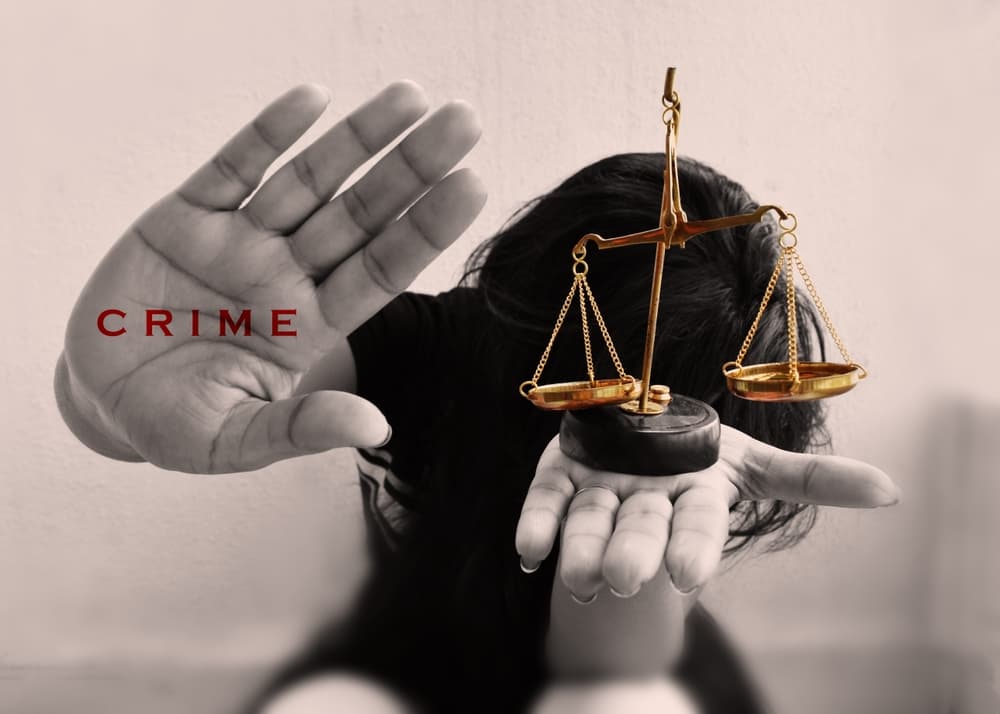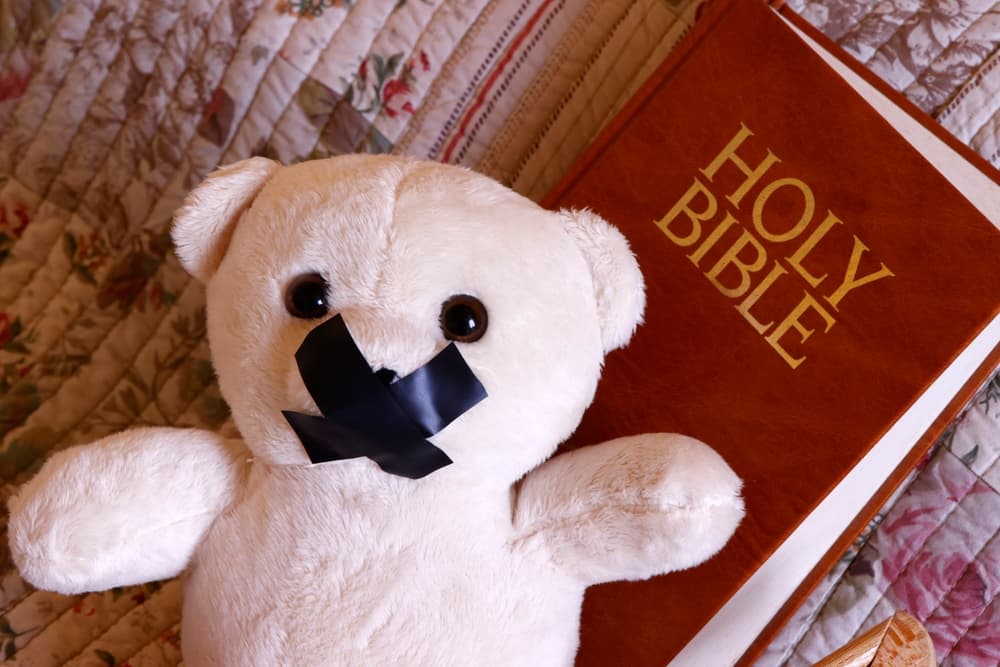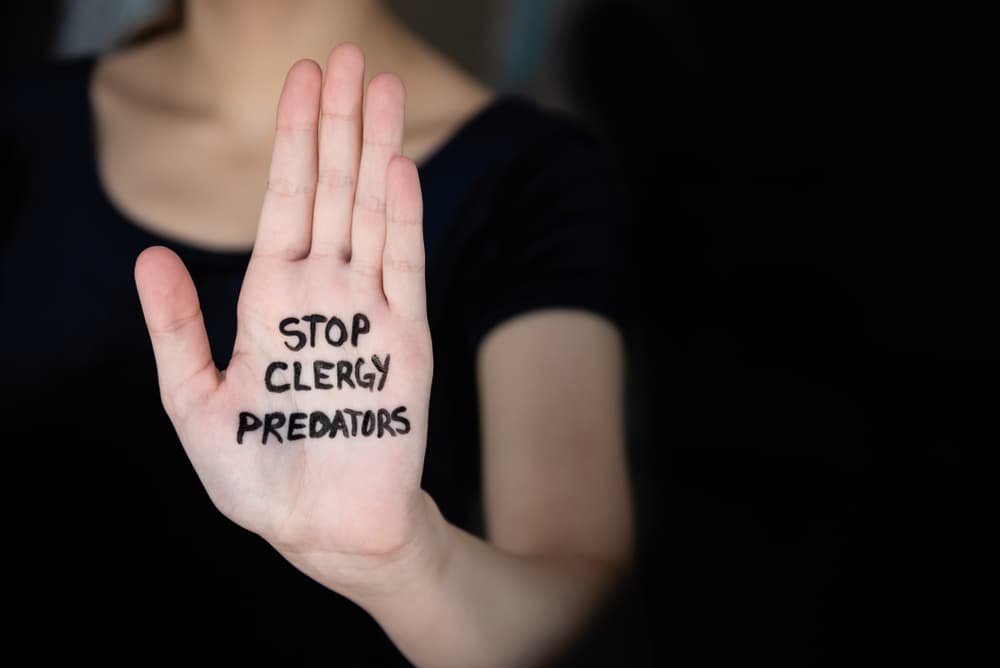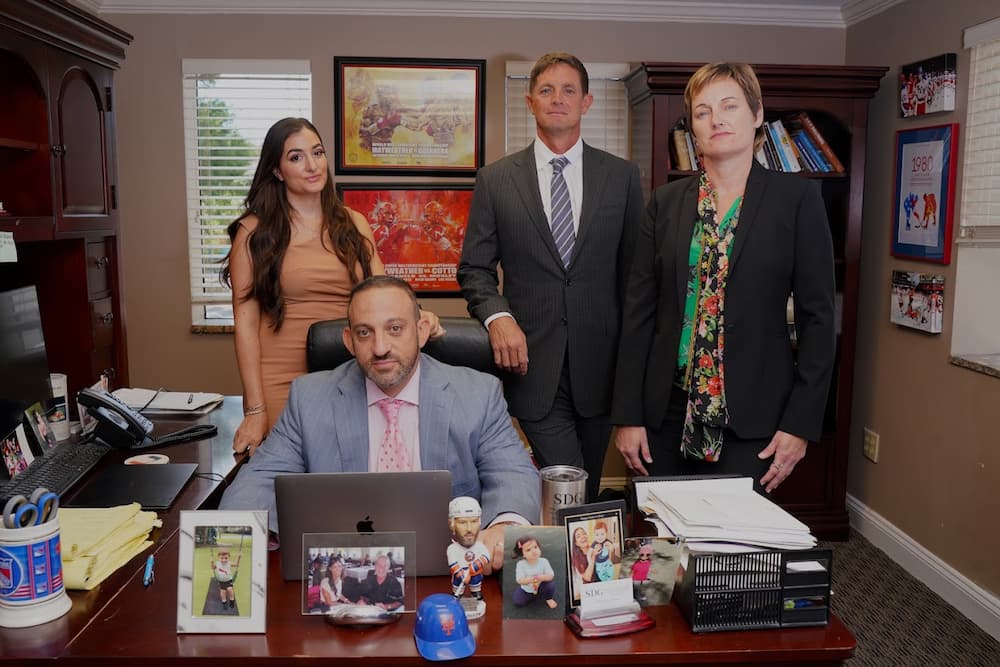There has been national and worldwide media coverage of the sexual abuse allegedly perpetrated by clergy within many dioceses within the Catholic Church, including in the Diocese of St. Augustine. Reports discuss acts of sexual assault and abuse committed against young children, such as those who served as altar boys.
The Catholic Church has paid over $3.8 billion to settle more than 8,600 sexual assault claims. While these numbers alone are shocking, what's even more shocking is that these figures probably represent a mere fraction of the total number of victims.
Sexual abuse, in any circumstances, is traumatic, but when it involves a child, it is a heartbreaking tragedy. The anguish of a sexual assault can last for decades and, for some victims, forever.
An experienced Diocese of St. Augustine sexual abuse lawyer can handle these cases and understand the sensitive and deeply personal nature of sexual abuse claims. Our compassionate sexual abuse attorneys will seek justice for you with skill, dedication, and empathy.
Schedule A Free Consultation
- The Florida Investigation
- Who Are the Victims?
- Eligibility for a Catholic Church Lawsuit
- Sexual Assault Lawsuits Involving Clergy
- What Is Clergy Sexual Abuse?
- Sexual Abuse is Rampant in the Catholic Church
- The Problem Priests Get Transferred
- Damages in Clergy Sexual Abuse Cases
- Injunctive Relief
- Statutes of Limitations in Sexual Abuse Cases Involving Minors
- Revival Window
- The Long-Term Effects of Sexual Abuse
- Resources for Clergy Sexual Abuse Survivors
- Steps in the Sexual Abuse Injury Claim Process
- Call Our Sexual Abuse AttorneysâWe Are Here to Help
The Florida Investigation

A Pennsylvania grand jury report released in August 2018 identifies 301 Catholic priests, including at least 14 with ties to Florida, who allegedly sexually abused over 1,000 children. Following the release of the report, hundreds of victims came forward regarding additional claims of abuse that resulted from the Catholic Church's negligence.
Florida, home to approximately 2 million Catholics, contains seven dioceses: Miami, St. Petersburg, Venice, St. Augustine, Orlando, Pensacola-Tallahassee, and Palm Beach. The Diocese of St. Augustine includes 17 counties in Florida, serving more than 158,000 registered Catholics. Florida Attorney General Pam Bondi initiated a statewide investigation in October 2018 of all seven Catholic dioceses in Florida for alleged clergy abuse.
The current attorney general of Florida, Ashley Moody, continued the statewide investigation and has requested the Florida dioceses to release the name of every Catholic clergy member with credible accusations. More than half of U.S. dioceses have released the names of credibly accused clergy.
However, the Diocese of St. Augustine, along with many other Florida dioceses, has chosen to wait until the conclusion of the investigation before releasing the names. About a year after the grand jury report, some dioceses, including the Archdiocese of New York, named 120 priests and deacons accused of child sexual abuse or possessing child pornography.
If you suspect child sexual abuse, then contact a child sexual assault lawyer today and learn what you can do to help. Individuals who want more information can access a list of publicly accused priests in the United States, including those from the Diocese of St. Augustine. The list does not state whether a listed individual is facing allegations, was convicted of a crime, or has been found liable for a civil legal action.
The organization responsible for the list, Bishop Accountability, also maintains a list of every known settlement paid by the Catholic Church to those who have alleged clergy sexual abuse.
The term clergy includes priests, deacons, and bishops. Priests make up the largest group of alleged abusers, but the term clergy also includes deacons and bishops. There have been allegations against bishops and other church leaders.
An article in the 2004 Fordham Urban Law Journal alleges that, since 1984, there have been about 3,000 civil cases related to clergy sex abuse in the U.S., of which most have settled.
Estimates of the number of cases come from information provided by plaintiff attorneys. The Catholic Church has not been forthcoming with such information.
The Catholic Church has its own legal system, known as canon law. It is hard to determine how many cases are in the canon-law system because the Church does not release those statistics. However, some Catholic leaders clearly appear to have overlooked or mishandled allegations.
In some cases, U.S. bishops knowingly transferred thousands of allegedly abusive priests into different and unsuspecting parishes and dioceses without revealing the offenses they had committed and the risk of future assaults. Also, it is clear that every time the Church reveals new information, more survivors come forward to report claims.
Who Are the Victims?
Statistics show that clergy allegedly assaulted more male victims than females. This may be partly because they traditionally had greater access to male youth. In the 1990s, more girls became involved in the Catholic Church, and as a result, the percentage of female victims increased. The ratios change when looking at adult victims of clergy sex abuse because most adult victims are female.
Eligibility for a Catholic Church Lawsuit
If you suffered damages from the actions or inactions of the Catholic Church, you can be eligible for compensation through a civil injury lawsuit. You can receive damages for your medical expenses, lost income, pain and suffering, and other losses.
Understandably, survivors are often hesitant to stand up and take action. Time may have passed, and you might have moved on from the incident. You may have gone through therapy and taken steps to heal your trauma.
However, coming forward and filing a lawsuit can be empowering. You will hold your abuser accountable for how much they have affected your life. You can use this compensation to pay for your medical treatment and psychological assistance or for general financial support and reduced concerns.
These legal actions help you heal and ensure you do not have to cover any losses the Church and your abuser caused you.
Even if the abuse occurred during childhood, you may still have legal options. Eligibility will depend on the unique circumstances of your case. When you meet with the Diocese of St. Augustine Sexual Abuse Lawyer, we will review your eligibility during a confidential case assessment.
Some clients we represent in clergy sexual abuse cases include:
- Child survivors and their parents. These cases are especially harrowing since they involve children who may not have the ability to defend or speak up for themselves.
- Those who suffered sexual battery at the hands of clergy as adults.
- Adult survivors who experienced abuse as children are ready to step forward.
Each of these situations will have different challenges, as legislation surrounding these issues is changing almost daily, often to allow more people to come forward.
Dolman Law Group Accident Injury Lawyers, PA, can help assess your available legal options. Deciding to take legal action is a personal decision. We understand you may just be reviewing your options now, but we are here when you are ready to move forward. Start with a case review with our team before you make your final decision.
Sexual Assault Lawsuits Involving Clergy

Sexual abuse and assault are crimes, but due to the difficult nature of the wrongdoing and the young age of the victim, they often go unreported for years or even decades. States' statutes of limitations prevent many would-be plaintiffs from ever filing criminal court cases against their alleged abusers.
Therefore, a civil lawsuit becomes abuse survivors' only option to seek justice and secure compensation for the harm that they have suffered.
Sexual abuse survivors can sue the Catholic Church for negligence, which involves conduct that creates an unreasonable risk of foreseeable harm to others. These theories encompass the idea that the Church knew of the alleged abuse yet continued to hire and employ credibly accused priests, ignoring the risk of harm to others by these actions.
A plaintiff can argue several different theories of negligence, such as:
The Church negligently hired a perpetrator without proper screening or evaluation.
- The Church negligently supervised the perpetrator.
- The Church retained the perpetrator even after receiving information about his risk of harm to others.
- The Church covered up the matter, for example, by transferring the priest to another jurisdiction.
As a victim, you can sue any person, institution, or organization directly or indirectly involved with the sexual abuse, not just the alleged perpetrator. Other potentially liable parties include schools, hospitals, businesses, a perpetrator's employer, or other entities that either knew or should have known of the abuse
If the named defendant did not provide adequate safeguards against the risk of sexual abuse, a court may find it liable for such negligence. Frequently, the parties settle the case out of court because negligence is clear.
What Is Clergy Sexual Abuse?
When a member of the Catholic Church commits sexual abuse against parishioners or other community members, it is clergy sexual abuse. Often, this happens with children who are involved in the Church.
Clergy includes parties such as:
- Deacons
- Bishops
- Priests
- Monsignors
Cardinals and nuns have also seen credible accusations but are not technically considered clergy members. They are in a bit of a gray area regarding the Church. Regardless of who is responsible, you might have the right to pursue compensation for their actions.
Sexual abuse can come in many forms but often includes:
- Fondling
- Sex trafficking
- Oral, anal, or vaginal sex with a minor
- Rape
- Masturbating in the presence of a minor
- Exposing oneself to a minor
- Forcing a minor to masturbate in front of the perpetrator
- Child pornography of any kind
- Text messages, phone calls, and other digital correspondence of a sexual nature
- Sexual conduct that is harmful to a child
Some solely apply to children, and other offenses to either adults or children.
Sexual Abuse is Rampant in the Catholic Church
As we mentioned, there are thousands of survivors of clergy sexual abuse. This is shocking, but professionals report that many additional cases of abuse have gone unreported, increasing the numbers even further.
The Catholic clergy has already paid out on claims regarding 5,679 allegations of sexual abuse, according to BichopAccountability.org. This may seem substantial, but it only accounts for about one-third of all allegations received in previous years.
Reports suggest a decline in sexual abuse and clergy molestation in recent years, but there's some debate surrounding this assertion. The Church claims this decline is due to updated policies and publicly addressing the issue of sexual abuse. Those outside the Church believe the decline in reports in claims is due to the statute of limitations running out for many past victims before changes to the law.
Regardless of whether abuse has decreased or not in the Church, victims deserve justice and compensation. You also deserve a compassionate legal advocate fighting for your rights.
The Problem Priests Get Transferred
While the Pope has taken steps to address this sexual abuse and encourage survivors to come forward, that does not solve everything. There are still dioceses that refuse to release the names of accused priests despite substantial public outcry against these cover-ups. This means there is no way to know the number and name of all clergy involved in sexual abuse within the Church.
When there are allegations of sexual abuse, the bishop or diocese will choose how to address the matter. Often, this resulted in moving the problem priest to a different location. Reports indicate the relocation of 138 clergy members to other dioceses nationwide. In ten cases, the priests relocated to another country; in four cases, the Church claims it lost track of the priests in question.
The issue is that the clergy members can continue to participate in the same actions when they get to the new location. Instead of resolving the problem, it resulted in more allegations.
Another issue with transferring these priests and clergy members is the new parishes are usually not aware of the abuse allegations or why the priest was transferred. This gave them no warning or opportunity to protect children or other vulnerable parties.
Damages in Clergy Sexual Abuse Cases
If a perpetrator is found guilty of sexual abuse, he or she may face not only criminal penalties but also civil damages. For many victims, there is a strong relationship between sexual abuse as a child and mental health problems.
For a victim of sexual assault, the suffering is pervasive. It can affect a victim's relationships, careers, and quality of life far into the future. Money can't change what happened, but it can help victims and their families recover in some way.
You should seek compensation that covers all of your trauma, including but not limited to:
- Difficulty holding employment
- Post-traumatic stress disorder (PTSD)
- Depression
- Anxiety disorders
- Drug and alcohol abuse
Injunctive Relief

The relief available to sexual abuse survivors in civil court is not limited to monetary damages. Determining damages after sexual abuse can be overwhelming because you may choose to seek injunctive relief in addition to or in place of monetary damages.
For example, you may seek an injunction, which is when a court prohibits a defendant from engaging in a specific act or behavior. Some lawsuits have asked for injunctive relief to compel the public to be mandated reporters for allegations of child sexual abuse, to compel the dioceses to release information that it provided to the grand jury, and to permit reporters to review records for accuracy.
Forcing the Church to take positive steps towards preventing future abuse is the primary purpose of all of these actions.
Statutes of Limitations in Sexual Abuse Cases Involving Minors
The statute of limitations sets the maximum amount of time following an incident that someone has to file a civil lawsuit for a particular type of legal action.
Sexual abuse claims have unique complexities when it comes to the statute of limitations. Public policy mandates certain exceptions because, in these cases, the abuse usually occurred when the victim was young.
Accordingly, the statute of limitations depends on a plaintiff's age at the time of the abuse.
- Cases that involve sexual battery involving a minor under 16 years old have no statute of limitations.
- Victims may file a lawsuit up to years after he or she reaches the age of majority, which is 18 in Florida.
- Four years after the victim “leaves the dependency of the abuser or four years from the time of the discovery of both the injury and the causal relationship between the injury and the abuse,” whichever is later.
Many members of the public have questioned why Church officials took so much time to come forward regarding the abuse allegations. This question perpetuates the erroneous idea that victims have some share in the blame and also fails to recognize the complex impact of abuse on victims.
However, psychological experts and other supporters have countered these questions with information about the long-term effects of clergy sexual abuse.
Many victims were children at the time of the assault; therefore, they may have lacked the understanding of what was happening to them and been unable to express it. Other factors include the severity of the trauma and the high position of the perpetrator.
Many children are taught not to make any kind of accusation against a priest or bishop. Sometimes, survivors live in a state of emotional paralysis. They may cope by repressing, minimizing, or denying the harm they suffered.
Often, if survivors did disclose the abuse years ago, they were not believed by parents, church officials, or the authorities. Sexual assault by members of the clergy is a terrible breach of trust that takes place in an atmosphere of power inequity. Therefore, it is not surprising that reports may take years, or even decades, to surface.
Many survivors are concerned about the statute of limitations question. If you are a survivor of sexual abuse, you should contact an attorney, even if your abuse happened long ago, to determine your eligibility to file a civil claim.
Revival Window
Some states have changed the statute of limitations, and others have created a revival window. These laws give victims who may have missed the original legal window to take action.
The specifics will vary by state, but our attorneys will consider:
- Age limits: Some revival windows come with age limits, while others do not. The person cannot file a claim under the new law without an age limit.
- Length of time: Some revival times are open indefinitely, while others are permanent.
- The entities open to being sued vary: Some windows graciously allow anyone to pursue damages, while other times, the revival window permits suing only the perpetrator, not the Church or other institutions.
Florida does not currently have an open revival window, and there is presently no move to revival windows within the state. This is not to say that one will not come in the future. However, as of now, always contact Dolman Law Group Accident Injury Lawyers, PA, and we can assess how current Florida laws affect your ability to file a claim.
The Long-Term Effects of Sexual Abuse

Being sexually assaulted is not only a physical violation of one's body, but it also inflicts deep emotional wounds. Often, there is a period of grooming leading up to the abuse so that the child feels responsible and guilty.
Over the years, the shame, humiliation, and fear remain or increase. In many cases, child or adolescent victims do not disclose their abuse until they are adults. Sexual abuse during childhood can have long-lasting effects, some of which can significantly erode the quality of your life as an adult.
Some of the long-term effects include:
- Anxiety
- Body image issues
- Depression
- Dissociative disorders
- Eating disorders
- Relationship problems
- Sexual problems
If you have a history of sexual abuse and are experiencing any of these symptoms, seek treatment and call the Dolman Law Group Accident Injury Lawyers, PA, for help in seeking compensation.
Resources for Clergy Sexual Abuse Survivors
Aside from having a Diocese of St. Augustine sexual abuse lawyer helping you during the process, you may want to find additional support services. These organizations and services are available for survivors to provide various benefits and promote their well-being.
These are sensitive topics, and everyone’s experience is different, so the most effective resources will vary depending on your situation.
Here are some options for support services to help clergy sexual abuse victims:
- Childhelp
- Male Survivor
- Survivors Network of Those Abuse by Priests
- Darkness to Light
- Faith Trust Institute
- Voice of the Faithful
- Addiction Center
- The Healing Voices
- Bishop Accountability
- Rape, Abuse & Incest National Network
- 1in6
You can try different services until you find the group or organization that works for you. The priority is getting the necessary help for your circumstances. If you need additional support sources, Dolman Law Group Accident Injury Lawyers, PA, can provide guidance.
Steps in the Sexual Abuse Injury Claim Process
Navigating a sexual abuse injury claim is a sensitive and complex process that requires both compassion and legal experience. Survivors of sexual abuse may find support and guidance by partnering with a knowledgeable Doral sex abuse attorney.
The following steps outline the general process of a sex abuse claim:
- Seek a Medical Assessment: Prioritize your or your child’s health and well-being by seeking immediate medical attention. Documenting injuries and obtaining medical records is crucial for building a strong case. Even if time has passed, a psychological assessment can help demonstrate the effects of the abuse.
- Report the Incident: Report the sexual abuse to law enforcement as soon as possible. This not only initiates a criminal investigation but also establishes an official record of the incident.
- Preserve Evidence: Preserve any evidence related to the abuse. This may include clothing, documents, or any other items that can support your case. Do not wash or alter anything until advised by law enforcement or your attorney.
- Identify Witnesses: Our attorneys can identify any potential witnesses who may have seen or heard the abuse. Their testimonies can provide crucial support for your case.
- Document the Incident: Record your own account of the incident, detailing what happened, where it occurred, and any relevant details. This can serve as a valuable resource for your attorney.
- Therapeutic Support: Seek therapeutic support to cope with the emotional aftermath of the abuse. Mental health records can be important evidence in your case.
- Consult Our Diocese St. Augustine Sex Abuse Attorneys: Schedule a consultation with a Doral sex abuse attorney from Dolman Law Group Accident Injury Lawyers, PA. We can provide legal advice, assess the strength of your case, and guide you through the legal process.
- Legal Investigation: Your attorney will conduct a thorough investigation, gathering evidence, interviewing witnesses, and collaborating with law enforcement. This may also involve obtaining any available surveillance footage or other relevant records.
- Negotiations or Litigation: Your attorney may engage in negotiations with the accused party or their representatives to reach a fair settlement. If an agreement cannot be reached, they will proceed with litigation, filing a lawsuit on your behalf.
- Trial Preparation: If your case goes to trial, your attorney will diligently prepare for court proceedings. This includes strategizing legal arguments, preparing witnesses, and presenting a compelling case.
- Supportive Legal Advocacy: Throughout the process, your attorney will advocate for your rights, providing emotional support and acting as a dedicated ally on your behalf.
Survivors of sexual abuse should never hesitate to reach out to a compassionate and experienced sex abuse attorney. We play a crucial role in seeking justice, holding perpetrators accountable, and helping survivors like you rebuild their lives.
Call Our Sexual Abuse Attorneys—We Are Here to Help

Survivors of clergy sexual abuse often feel that they are alone, but support is available. Clergy sexual abuse is tragically common, and sexual abuse of children and youth is abhorrent. Despite an increased awareness of sexual abuse allegations within the Catholic Church, officials are still not doing enough to stop it.
According to a study by the Pew Research Center, about eight in ten U.S. adults think that the reports of sexual abuse and misconduct by Catholic Clergy reflect “ongoing problems that are still happening” in the Church.
Survivors of clergy sexual assault are eligible to seek compensation for the harm, both physical and emotional, caused by the sexual assault by filing a lawsuit. It is time to stop suffering in silence. Sexual assault is a sensitive issue, but a compassionate attorney will make sharing your story as easy as possible.
The legal process is complex, particularly when it involves sexual abuse that occurred years ago, which is why a victim should retain an experienced sexual assault attorney to guide him or her through the process and obtain the best possible outcome given the circumstances. We always hold our consultations in the strictest confidence. We have offices across both Florida coasts.
For a free, confidential consultation with one of our dedicated, compassionate personal injury attorneys, contact Dolman Law Group Accident Injury Lawyers, PA, online or by calling (727) 451-6900.